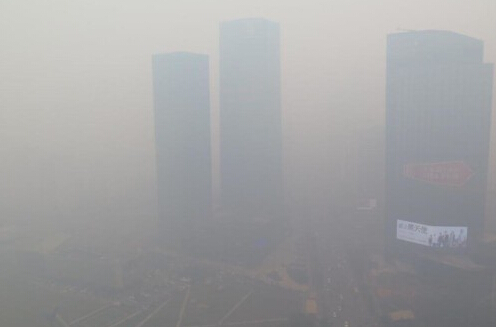为实现自己的商学院(微博)之梦,无数学生默默地在GMAT(微博)考试中付出自己辛勤的汗水。所有GMAT高分故事背后都有值得我们学习的GMAT备考经验。相信这样的一个个GMAT高分故事能够在你备考GMAT考试的过程中送上一丝鼓励与指导。
GMAT逻辑推理对很多同学来说都是一大难点,只有掌握好GMAT逻辑技巧才能从容应对GMAT逻辑题库。
题一
In Patton City, days are categorized as having heavy rainfall (more than two inches),moderate rainfall (more than one inch, but no more than two inches), light rainfall (at least a trace, but no more than one inch), or no rainfall. In 1990, there were fewer days with light rainfall than in 1910 and fewer with moderate rainfall, yet total rainfall for the year was 20 percent higher in 1990 than in 1910.
If the statements above are true, then it is also possible that in Patton City
A. the number of days with heavy rainfall was lower in 1990 than in 1910
B. the number of days with some rainfall, but no more than two inches, was the same in 1990 as in 1910
C. the number of days with some rainfall, but no more than two inches, was higher in 1990 than in 1910
D. the total number of inches of rain that fell on days with moderate rainfall in 1990 was more than twice what it had been in 1910
E. the average amount of rainfall per month was lower in 1990 than in 1910
已知:heavy rainfall > 2 inches; 2>=moderate rainfall > 1; 0 <="1"> 且 1990年小雨和中雨的天数都比1910少,然而1990年全年的降雨量还比1910多,那就只能是1990年的大雨天数比1910多,一般我们都会这样的预估,但选项恰恰没有该项。迷茫中,看到了D,误以为找到了救星,正好落在了出题者的陷阱之中。
细看该题所问“If the statements a above are true, then it is also possible that in Patton City”,原来并非是由原文推出选项的导出题,而是一道怪题;只要是“可能的”项就是正确的。换句话说,依据原文,有四个选项是绝不可能的,只有一个是可能的。
那再看D,在1990年中雨天数比1910少的情况下,其降雨量可以超过1910的2倍吗?绝不可能 ------ 因为2>=moderate rainfall > 1,即最大的中雨量不超过最小的中雨量的2倍,也就是:即便1990的中雨天每次都是最大量,而1910的中雨量每次都是最小量,那么D都不能成立。
而B与C明显与已知条件矛盾(“1990年小雨和中雨的天数都比1910少”)
而E与“1990年全年的降雨量还比1910多”冲突看来也就A有希望了;但A与我们的预估相反。
但A的确是可能的,这一点人间惆怅客和其楼上的新浪网友都有很好的解释。说个最极端的情况,1990年只下了一天雨,那是一场万年不遇的亿寸豪雨,其降雨量可以远远超过1910年的天天小雨、中雨或so so 大雨。一天就超过365天这有什么不可能的呢?
其实这题一点也不难,就是怪,思路逆向而走,在狭缝中寻找可能空间;看到这里,各位看官霎时领悟,真可谓:“忽报人间曾伏虎,泪飞顿作倾盆雨”
题二
In the United States, vacationers account for more than half of all visitors to what are technically called “pure aquariums” but for fewer than one quarter of all visitors to zoos, which usually include a “zoo aquarium” of relatively modest scope.
Which of the following, if true, most helps to account for the difference described above between visitors to zoos and visitors to pure aquariums?
(A) In cities that have both a zoo and a pure aquarium, local residents are twice as likely to visit the aquarium as they are to visit the zoo.
(B) Virtually all large metropolitan areas have zoos,whereas only a few large metropolitan areas have pure aquariums.
(C) Over the last ten years,newly constructed pure aquariums have outnumbered newly established zoos by a factor of two to one.
(D) People who visit a zoo in a given year are two times more likely to visit a pure aquarium that year than are people who do not visit a zoo.
(E) The zoo aquariums of zoos that are in the same city as a pure aquarium tent to be smaller than the aquariums of zoos that have no pure aquarium nearby.
从问题中的“helps to account for”可以明确该题是解释题,所以要怀着读出“奇怪或矛盾”的目的去阅读原文(绝不是怀着奇怪的心态去阅读)
读完原文发现,一方面vacationer占了参观pure aquariums人数的一半,而同时只占了参观zoo人数的不到四分之一。这是怎么回事呢?尤其是zoo中还有zoo aquarium呢。这题读完,本身觉得也没啥矛盾,就是心里觉得怪怪的。(注意原文中account for 意为“占”,而问题中的意为“解释”)
初步预估,大概是vacationers都是纯爷们,特爱看纯水族,不是很爱看ZOO中的水族(毕竟scope不如纯的全面)
如果这样想,很多人就会青睐D项;D说人民群众参观ZOO的可能性是参观纯水族的两倍多,好像解释了;仔细一想不对啊,这和vacationer占参观人数的比例毫无关系啊;同学们,分子分母思维法,不可只想分子,更不可只想分母啊。
该题的核心是vacationer;这是原文的轨道,切不可脱离,那vacationer的参观者和其它参观者有啥子区别呢? 恩,vacationer,旅游度假者也,多是去外地观光,而其它参观者当然是当地居民了。一个旅游观光者到外地一般会看什么景点呢?当然是自己本地所没有的。所以嘛,这道题的答案就已经浮出了水面。
应该是 B (有纯水族的城市少,所以每到这个城市的vacationer要去纯水族的可能性就比去参观ZOO的可能性大的多,毕竟几乎所有城市都有ZOO;而当地游客这种偏爱就不明显;分子分母思维法,定要牢记)待忆~思盈的分析已经接近真理,望再接再厉 ”





































































































